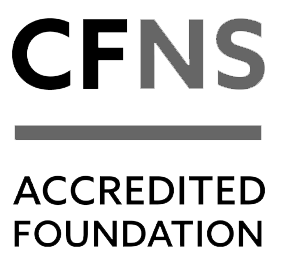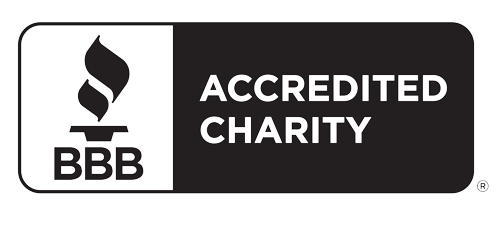Once you establish a charitable fund at the Community Foundation, you can add to it at any time and in any dollar amount. We offer a wide range of giving options and vehicles that you can use to establish or grow a charitable fund. Our staff would be pleased to discuss the following options with you and/or your financial advisor.
Because the Community Foundation is a 501(c)(3) public charity, gifts to any of our funds provide donors with the maximum tax deductions allowed by law.
Outright Gifts
Cash: Cash gifts are the simplest way to establish a charitable fund or to add to an existing fund. Cash gifts are fully deductible up to 60 percent of the donor’s adjusted gross income in any one year. Deductions exceeding this limit can be carried forward for up to five additional years.
Securities: Gifts of appreciated securities (bonds and stock, including stock in closely held companies) may be used to establish or grow an existing fund. Such gifts often provide important tax advantages. Their full fair market value is deductible as a charitable contribution up to 30 percent of your adjusted gross income. As with gifts of cash, deduction amounts exceeding this limit may be carried forward for up to five additional years. The added benefit of giving appreciated securities is the avoidance of the capital gains tax on the appreciated portion of the gift. Gifts of closely held stock enjoy the same tax benefits as gifts of publicly traded stock.
Life Insurance: Life insurance policies also can be used as charitable gifts. If you name the Community Foundation of Northern Colorado as the owner and beneficiary of an existing or new life insurance policy, you receive an immediate tax deduction, which usually approximates the cash surrender value of the policy. All subsequent premium payments made by you will be deductible as a charitable contribution.
Remainder Gifts
Bequests: You can establish or add to your named fund in your will or trust through a bequest. Your gift can be used to accomplish almost any charitable goal; examples include establishing a scholarship fund, creating an endowment for a particular charity, and leaving a family legacy, which allows children to continue their involvement in charitable grant making.
Pension plan beneficiaries: A retirement plan is one of the best types of assets to transfer to a charity because it produces taxable income. Most assets an heir inherits are free from income tax. However, an heir will pay income tax on disbursements from a decedent’s retirement plan such as a profit sharing plan, Section 401(k) plan or IRA. If you are going to make a charitable bequest, it is usually better to transfer the taxable assets subject to income tax to a tax-exempt charity — such as a community foundation — and to transfer the assets not subject to income tax to heirs.
For a taxable estate over $3 million, the combination of estate and income taxes will frequently exceed 75 percent of the total amount — even more if the generation skipping transfer taxes are triggered. At a cost to your heirs of only 25 percent of the fair market value of these types of assets, you could apply 100 percent of the assets to a named charitable fund to accomplish your specific charitable objectives.
Life insurance beneficiaries: Perhaps you would like to contribute the proceeds of a life insurance policy to help the community, but you are not yet ready to give up ownership of the policy. By naming a community foundation only as beneficiary, you retain ownership of the policy and have access to the cash value as well as the right to change the beneficiary. If you don’t have liquid assets right now but want to support a favorite charity, a gift of life insurance may be a good option. While you retain ownership of the policy, there is no charitable deduction for the value of the policy when you designate a community foundation as the beneficiary or for subsequent insurance premiums. However, proceeds payable to the community foundation at your death will not be subject to federal estate taxes.
Life income plans
Charitable Remainder Trusts: A community foundation can administer charitable remainder unitrusts and annuity trusts, both of which pay lifetime income to you or other named beneficiaries. Establishing a trust is simple. Cash or property is transferred to the trust. The income beneficiaries receive annually an amount equal to a fixed percentage of the trust’s fair market value (unitrust) or a fixed dollar amount (annuity trust). Upon termination of the trust, the assets are transferred to your named charitable fund to support your individual or personal charitable giving goals.
Charitable Gift Annuities: A charitable gift annuity from the NoCo Foundation is a way for you to receive a guaranteed income for life and an immediate income tax deduction, while at the same time, leaving a legacy to the charitable cause of your choice.
Through a charitable gift annuity, you receive a fixed stream of income for life. After paying the lifetime annuity to you and your spouse, the remaining principal is transferred to your named charitable fund to accomplish your specific charitable goals.
Payments to you are based on your age; the older you are, the higher the rate. If the annuity is for you and your spouse, the calculation is based on your joint ages. If you need the income now, you can use a deferred plan and receive the income tax deduction now, but begin receiving payments when you reach a specific age. This is an excellent complement to your existing retirement plan.
The tax advantages of both a current and deferred annuity are two-fold. First, you receive an immediate income tax charitable deduction when you create your annuity. This is based on your age and annuity payout rate. Second, a portion of the payments you receive may be treated either as tax-free return of principal or long-term capital gains. These tax advantages increase the net income you receive.



